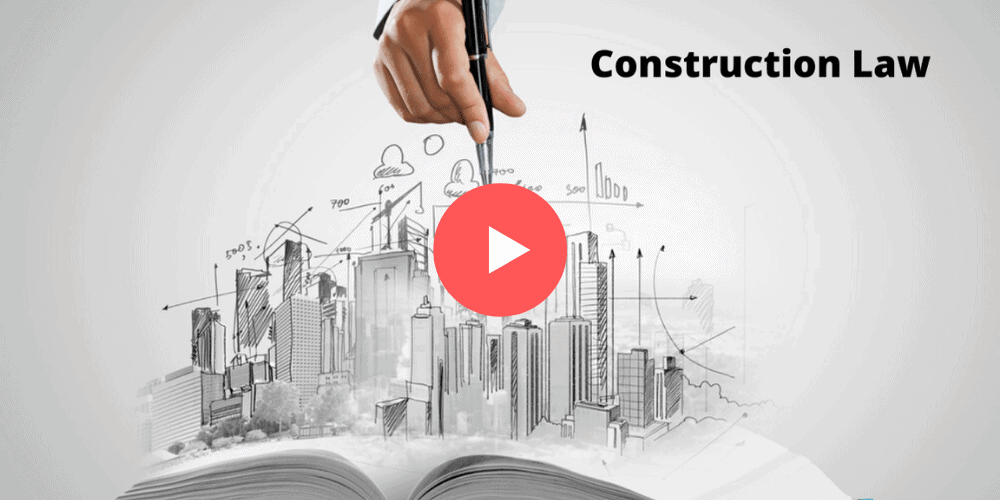Episode 11 – Keith Kelliher – Part 2
A Deep Look At The Construction Contracts Act
Does the Construction Contracts Act cover both Sub-Contractors & Main Contractors on Irish construction projects?
Ciaran talks to Keith Kelliher, who is an expert in construction law and brings huge experience in dealing with contract disputes on construction projects. Watch Part 1 with Keith Kelliher where he discusses how COVID-19 can affect your current construction contract.
Throughout this episode, Ciaran & Keith discuss the process and protections available to sub-contractors and main contractors on Irish construction projects. You can find out more about Keith here.
Podcast best bits
Does the construction contracts act protect our sub-contractors or main contractors?
Ciaran:
Was it put in place as a protection mechanism on this subbies part, or was it just to put a process in place that we should all be playing by these rules?
Keith:
It was pushed by the subcontractor community because they bore the brunt, you know like at the end of the day Sean Gallagher was a subcontractor and he pushed it to legislation, was drafted but, like the CIF and others would have fed into that and it became an overall piece of legislation for the industry, not just for subcontractors. But when you read it and when you look at the case laws and stuff that are in the UK around similar legislation, it’s very much that main contractor, subcontractor divide, and it was mainly pushed by subcontractors. But it does have the exact same protections for main contractors.
What is the construction contracts act?
Ciaran:
What does it entail, and what does it mean as an act?
Keith:
Well, there’s two parts to it. So the biggest difficulty with, I suppose, the adjudication process is that you can only go to adjudication if you have what we call a crystallized dispute.
Now, people will think, in many cases a sub-contractor will be around when the main contractor in the middle of a job, that sub-contractor will be looking for 50 grand, and the main contractor will be paying him 30. Now in the current system, it will be viewed that you have a dispute there, over 20 grand. But in our current system we have, and even many of your clients and people who’ve never heard of Construction Contracts Act, they operate in an interim valuation process. You send in an interim valuation and the main contractor pays you what’s called on account.
So you’re looking for 50 grand, I’m going to pay you a 30. We’ll sort of the 20 near the end of the job. There was never a crystallized dispute because it was all on account, it was all interim valuations. And the difficulty with that would be that if you had that 20 grand theoretical dispute day one, by day 400 that 20 grand could be 200 grand because that dispute between you could have a continuing effect. So the Construction Contracts Act when it came in was two front. One, that it had a method of formalizing a dispute on a cycle. So on a payment cycle there would be a way that both parties would know they’re in dispute, and then that would crystallize.
And that’s one whole part of the act that a lot of people don’t hear about it, and that’s the basis of the seminar I run with the CIF is around this whole idea of there now being a payment process and how you follow that process to get paid. And that’s what I always say to anyone who’s been to any seminars, will hear me talk about, but that’s coming in the front door. You come in the front door, you seek payment in the right way. The other side have to come back to you and explain to you why you’re not getting paid. And they have a set time period to do that. And if they don’t comply with that time period, you’re entitled to all the money you look for. If they come back to you and explain to you why you’re not getting paid, you then can negotiate with them, or you can give them the information they need to justify your payment. So it opens that communication-
Ciaran:
Just to jump in on that point, Keith, is there fear, if I’m on the subbie’s side, for example, and we’re at the start of a project, and let’s say we use your example, 50 grand he’s claiming, and he’s going to pay me 30 grand and I’m going to go after the other 20 because I need it to pay the lads. Is there a fear that we’ve got another 12 to 18 months left in this project and I’m going to completely destroy relationship, so I won’t bother, I’ll try and cashflow that somewhere else?
Keith:
Yeah. There is that fear, but I suppose it’s the… Where the Construction Contracts Act is aimed at is in that initial part about the payment, is that it provides a roadmap where you know why that 20 grand exists. That was one of the biggest issues that we would have had in the industry for you, and still do today, if you’re not using the system, is the lack of communication between the main contractor and subcontractor as to why they’re not getting paid. So if you don’t know why you’re not getting paid the 20,000 euro, it makes it very difficult for you to resolve that issue between you. So the Construction Contracts Act places a requirement on them. So you now are in a scenario where you know why you’re not being paid.



